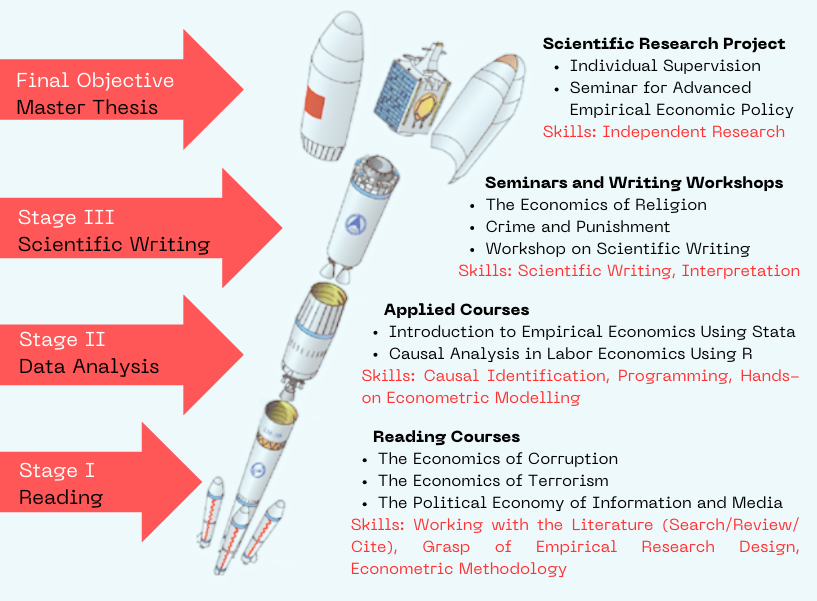Our Teaching Concept

The teaching concept of our chair focuses on promoting crucial skills essential for an empirical economist. We offer different kind of courses – reading courses, applied courses, and seminars and writing workshops – which build on each other and promote particular skill sets corresponding to a different research phase (work with the literature, data analysis, scientific writing, academic presentation).
In reading courses, such as 'The Economics of Terror', 'The Economics of Corruption', or 'The Political Economics of Media', master students learn how to read and understand scientific articles, the empirical concepts behind them - including possible pitfalls -, how to generate relevant research ideas, and how to select the appropriate econometric model for identifying causal relationships.
In hands-on applied empirical courses (e.g., 'Introduction to Empirical Economics Using Stata'), students learn how to implement their own research practically, which includes data acquisition, programming, generating and visualizing output, and evaluating it.
In our seminars (e.g., 'The Determinants of Violent Behavior', 'The Political Economy of Religion'), we teach and practice scientific writing.
Finally, we supervise and support our students closely in developing their theses, which includes participating in our advanced seminars where students present their work, see others presenting theirs and get detailed feedback.
Since the grand objective of our concept is to motivate independent and original research among students, we can certify its success by the significantly increasing number of students who write empirical theses and, more pertinently, the growing number of theses that are (jointly) published in highly ranked peer-reviewed journals, such as the Journal of Law and Economics, Economic Letters, European Journal of Political Economy, European Economic Review, Journal of Development Economics. This is highly unusual.
We review our concept in real-time and ensure that our courses contain the latest literature and developments. The teaching approach is based on didactic principles and involves a very high degree of interaction and feedback. Our goal is to enable students to really understand research and to carry out their own projects and to fast-track them to PhD projects.

